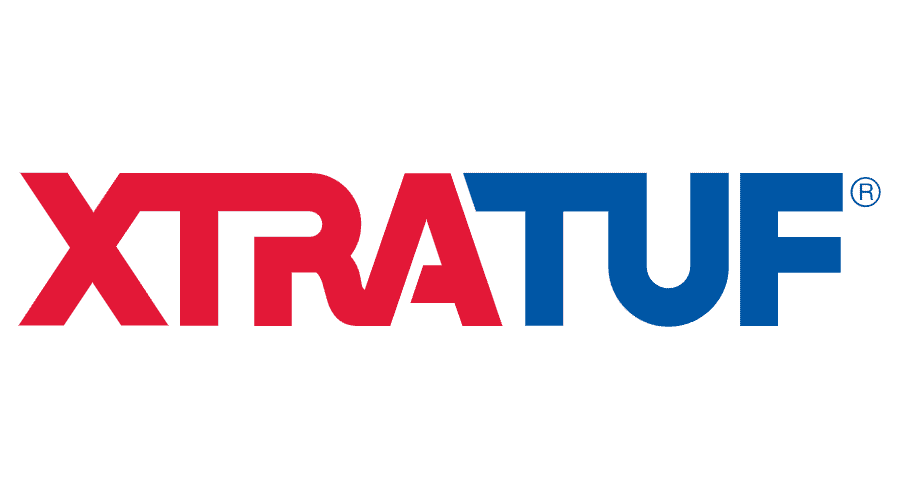Race for Team USA

Eligibility
I missed the submission deadline for the ECG, what can I do?
If an athlete did not submit an ECG and/or complete the Eligibility Submission Form by the deadline, they can submit it for an administrative fee of $75. Late submissions are not guaranteed to be reviewed by the cardiologist before selection events. If it’s read in time, the athlete will be required to pay an additional $75 reading fee in addition to the administrative fee. If it's not read and cleared before selection, the athlete is ineligible to participate.
If an athlete has a valid reason for missing the deadline, they may request an exemption to the administrative and reading fees by submitting a request to the Chief High Performance Officer. USRowing has the discretion to approve or deny this request.
Drug Testing & Therapeutic Use Exemptions
How can I check the medications or substances I’m taking?
The Global Drug Reference Online (DRO) is a searchable database of the WADA Prohibited List and is updated January 1. The DRO is the easiest way to check the status of your medications, or to check the status of a specific ingredient. For more information on the Prohibited List, refer to the Athlete Guide to the WADA Prohibited List.
Is there a possibility I will be drug tested?
Yes, all competing athletes at USRowing and FISA events are subject to in-competition drug testing conducted by USADA. Athletes should be prepared for testing prior to competing at any USRowing or FISA event. To ensure your compliance prior to competition, please follow this pre-event checklist:
- Check your medication. To check the status of your medication against the WADA prohibited list, please check the Global Drug Reference Online. To speak with an expert, you can also call the USADA Drug Reference Line at 800-233-0393. Keep in mind, these resources do not provide guidance on nutritional supplements. For guidance on nutritional supplements, please visit USADA.
- Understand Therapeutic Use Exemptions (TUE). Depending on the use of your medication, you may have to apply for a Therapeutic Use Exemption (TUE). If a substance you are taking requires a TUE, you must have an approved TUE at the time of competition, a TUE that is pending approval is not acceptable. Please note that a TUE will not always be granted. Visit the USADA to learn more.
- Know your rights and responsibilities. At any USRowing and World Rowing event, all participants are subject to testing. If you are selected, know your rights and responsibilities during the testing process including sample collection process rights and responsibilities, minor athletes rights, and disabled athlete rights. Visit USADA to understand your rights.
- Familiarize yourself with the sample collection process. If you are selected for testing, you are subject to both blood and urine testing. The processes are designed to be effective, yet safe and comfortable for the athlete. Understanding the processes should help to make them less intimidating. Learn more about the blood and urine testing process.
- After the event. USADA will send a copy of your results to the address that is listed on the Doping Control Official Record. Learn more about the results management process.
How can do I determine if I need to apply for a Therapeutic Use Exemption (TUE)?
The USADA TUE policy is consistent with the WADA International Standard for Therapeutic Use Exemptions and is designed to protect the rights of clean athletes. All TUEs can be submitted to USADA and will be passed on to FISA for approval if that athlete will be competing at a World Rowing sanctioned event. If you are an athlete in the process of trying out for a National Team or planning on competing in a FISA sanctioned event, you are in the Registered Testing Pool, or you have ever tested positive for a banned substance, you will need to complete a TUE.
Search your medication on the Global DRO to determine its prohibited status. If the substance is not prohibited in-competition or out-of-competition, no TUE or further action is needed. If it falls into one of the follow categories, complete a TUE:
- Prohibited in-competition but not prohibited out-of-competition.
- Prohibited in-competition and prohibited out-of-competition.
- Conditional in- or out-of-competition.
Unsure? Contact the USADA Athlete Express Hotline at (800) 233-0393 or AthleteExpress@USADA.org.
How do I complete a Therapeutic Use Exemption (TUE)?
The TUE submission form can be found HERE.
What does it mean to be in the Registered Testing Pools (RTP)?
Athletes in a Registered Testing Pool (RTP) will be required to submit detailed Quarterly Whereabouts Filings once enrolled. Athletes in the RTP are subject to out-of-competition testing at any time while enrolled in the pool.
Who is included in the Registered Testing Pool (RTP)?
Athletes identified by USADA for inclusion, athletes who fail to comply with expectations while in the Clean Athlete Program, athletes in their International Federation's Registered Testing Pool, or sanctioned athletes.
What are Quarterly Whereabouts Filings?
Athletes in the USADA Registered Testing Pools must submit a Quarterly Whereabouts Filing. These athletes provide information including their living address, training location, training schedule, regularly scheduled activities schedule, competition schedule and travel schedule. Athletes may be tested by USADA and/or WADA. Athletes are responsible for keeping their whereabouts up-to-date and accurate and are responsible for submitting all USADA paperwork on time. Once enrolled in the RTP, athletes will be contacted with instructions on submitting whereabouts. To update or make changes to whereabouts after they have been submitted, athletes can log into their accounts at HERE.
What are the Whereabouts deadlines?
Athletes are required to submit their Quarterly Whereabouts Filing by the following dates:
- Quarter 1: December 15
- Quarter 2: March 15
- Quarter 3: June 15
- Quarter 4: September 15
What happens if I do not complete my Quarterly Whereabouts Filing by the USADA deadline?
All athletes in the RTP who do not file their Quarterly Whereabouts Filing by the USADA deadline will be issued a Filing Failure. A Filing Failure falls under the category of a Whereabouts Failure. Providing whereabouts information that is incomplete or does not provide detailed location information is also a Filing Failure. Athletes should submit their "Quarterly Whereabouts Filing" prior to the established deadline via the HERE.
What happens if I miss a test by USADA?
Another type of Whereabouts Failure is a missed test. If an athlete is not available for testing at the locations indicated on their Whereabouts Filing, they are at risk of being issued a missed test.
In order to prevent a missed test, you should update your records immediately if you:
- Will not be available during your 60-minute window.
- Will be attending a competition you did not include on your Quarterly Whereabouts Filing.
- Will not be attending practice on a day you indicated you would be.
- Will be traveling out of town for the weekend or overnight.
- Will be doing a personal appearance/clinic out of town.
- Will be leaving for a competition a day earlier than you indicated you would.
- Will be practicing at a different location than is listed on your Quarterly Whereabouts Filing.
- Will be practicing at a different time than is listed on your Quarterly Whereabouts Filing.
- Will be living at a new address.
- Have changed your phone number.
If an athlete is issued three Quarterly Whereabouts Failures in twelve months, this is considered an Anti-Doping Rule Violation (ADRV). This violation could result in possible loss of an athlete's USOPC funding, possible loss of medals, prizes, and prize money, possible loss of an athlete’s ability to compete in that sport, possible loss of an athlete’s eligibility to compete at the Olympics or Paralympic Games.
What is the Clean Athlete Program (CAP)?
The Clean Athlete Program (CAP) includes athletes who are selected for a national team or are representing Team USA at international competitions, athletes identified by USADA for inclusion, or athletes with specific competition results.
What are the requirements for athletes in the Clean Athlete Program (CAP)?
Athletes who are part of the CAP are required to submit their orimary overnight location, typical training location(s), and competition schedule to their USADA account twice a year; once on December 15 and once on June 15. Athletes in the CAP should ensure all information submitted to USADA is kept up-to-date but are not subject to daily changes if their schedule changes.
Athletes in the CAP must complete the annual Athlete's Advantage education tutorial each year. These athletes may be selected for testing based on in-competition or out-of-competition risk, as well as training and competition schedules. Any non-compliance may result in the athlete being moved to the RTP for a minimum period of nine months.
I’m retiring from rowing; how do I remove myself from the Registered Testing Pool?
Athletes who are retiring from the sport of rowing can remove themselves from the RTP by e-mailing USADA at athleteexpress@usada.org. Until confirmation of retirement from USADA has been received, athletes should continue to abide by all rules and adhere to all RTP deadlines.
I’m coming out of retirement; how can I re-enroll in the Registered Testing Pool?
To re-enroll in the USADA RTP, an athlete must send a return from retirement statement through to athleteexpress@usada.org at least six months prior to any competition.The statement must come from an e-mail address that is on file with USADA.
Dietary Supplements
What is a dietary supplement?
Dietary supplements are products containing dietary or nutritional ingredients intended to supplement the diet.
If a dietary supplement claims it's natural, does that make it safe?
Just because a product claims to be natural, it does not make it safe to use. There are many natural substances that are toxic, poisonous, or deadly if used. Some companies label a product natural even when all of the ingredients have been synthesized in a lab.
Are the ingredients listed on the label of my supplement accurate?
You cannot rely on the label to tell you what is in the bottle. Products can be mislabeled and might not include the proper amounts of intended ingredients. Additionally, some products might be contaminated by substances containing pesticides, heavy metals, or may be inadvertently tainted with sport-prohibited or potent substances due to cross-contamination.
Are supplements FDA approved?
No supplement is approved by the Food and Drug Administration (FDA).
What are the possible side effects of energy drinks?
Heart palpitations, headaches, respiratory distress, insomnia, tremors/shaking, dizziness, agitation/restlessness, chest pain, gastrointestinal upset, tingling or numbness of the skin. In the case of an overdose, one may experience confusion, breathing trouble, muscle twitches, convulsions, fever, hallucinations, vomiting, increased thirst, irregular or rapid heartbeat, excessive sweating, and an appearance of nervousness.
Performance Enhancing Substances
What is a Performance Enhancing Substance?
Typically, a substance or method is performance enhancing when it improves sport performance and poses a health risk to an athlete. Performance enhancing substances range from steroids to prescription drugs that are taken for a non-legitimate use.
What are some of the physical side effects of performance enhancing substances?
Acute, or short term, side effects include a sudden change in physical appearance, a sudden shift in performance level (up or down), increased or flared acne on the body, nausea, tremors, cardiac arrhythmia.
Chronic, or long term, side effects include increased risk of heart attack, stroke, and seizures, weakening of the immune system, high blood pressure, cardiovascular disease, liver disease, and sexual side effects (for example, breast development in males).
As an athlete you are always responsible for what goes into your body. Never take a substance unless you are fully aware of what it contains. If you are required to take.

Team USA
National Team Selection Information

Education
The Launch

Safeguarding























